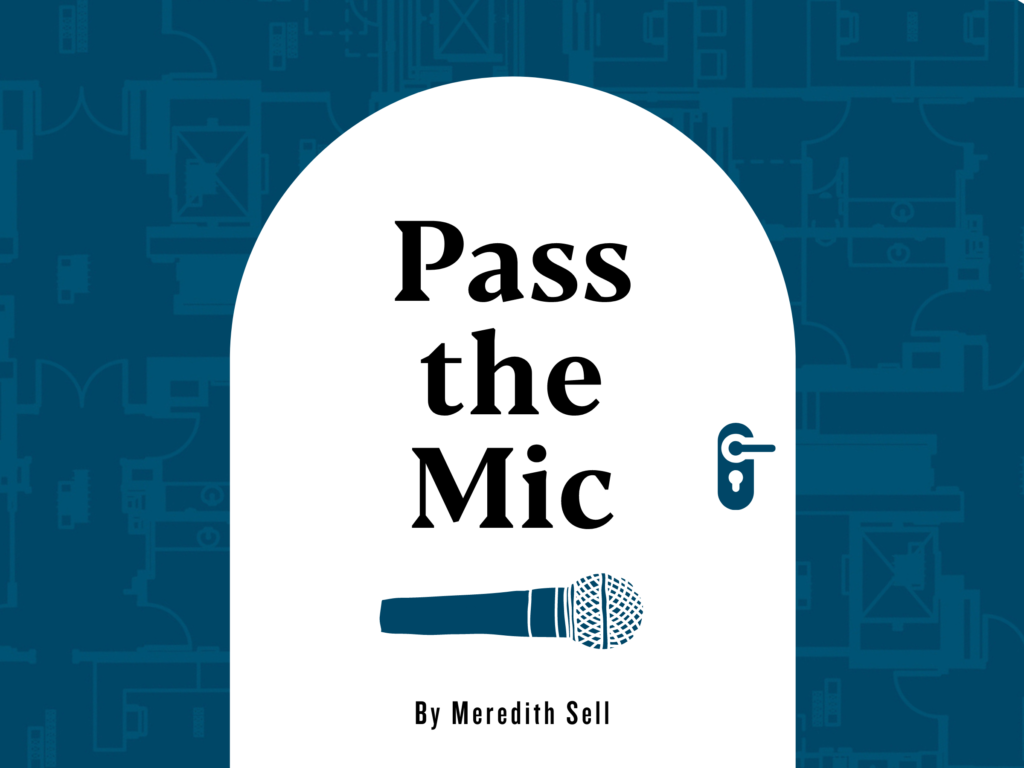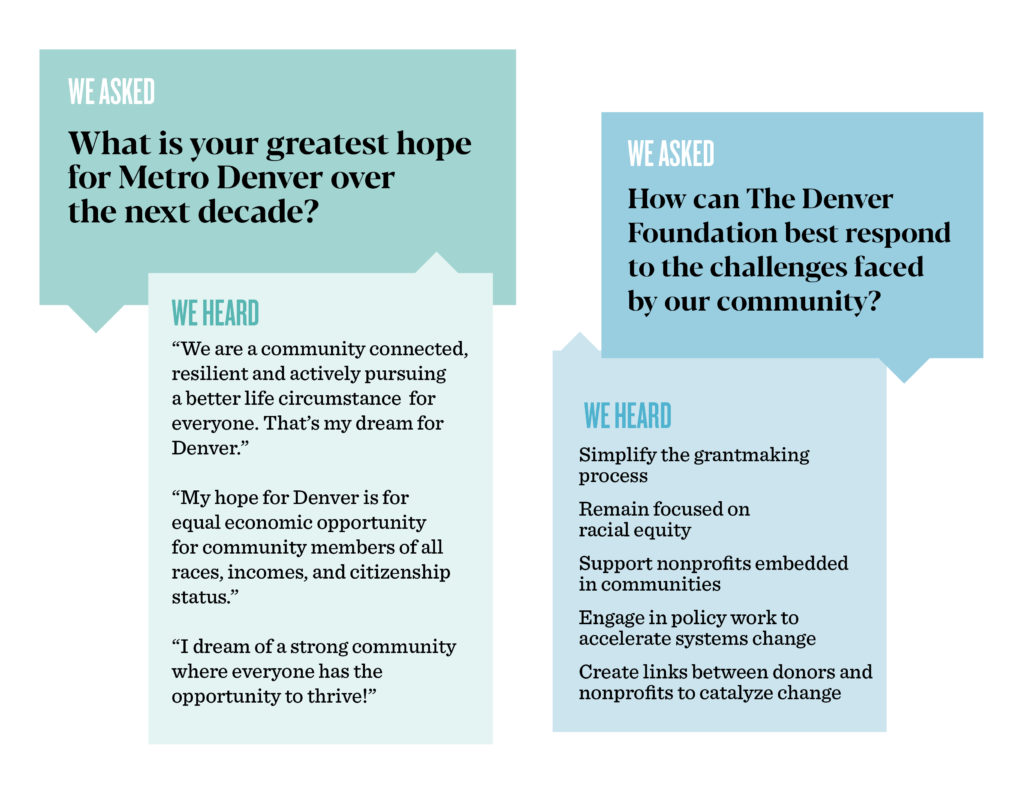Last February, day laborers and domestic workers arrived at Centro Humanitario’s center in downtown Denver for a monthly member assembly. They met David Portillo, Strengthening Neighborhoods Officer for The Denver Foundation, who was there to run a community input session for TDF and hear from Centro Humanitario’s members, many of them Spanish-speaking immigrants, about what they saw as major issues in the Denver Metro Area.
This was one of more than 37 sessions held between February 3 and May 22 of last year, as part of a larger community engagement initiative that ultimately reached more than 1,200 people. Through in-person and virtual sessions (before and after the onset of the pandemic), an online survey to encourage more frank feedback, and phone polling, TDF sought input from community members across various demographics and socioeconomic levels in an effort to understand what everyday Denverites see as problems that TDF could potentially help solve. The findings guided the development of TDF’s new strategic framework.

“We’re a community foundation, so we need to know what people are worried about, we need to know what they’re hopeful about, and we need to know … their opinions on solutions—and then how we fit into that,” said Kristi Keolakai, TDF’s Vice President of Partnership, Policy, and Learning. “One of the biggest pieces of creating a new framework is understanding the voices of the people that we’re serving.”
Before the pandemic, community input sessions were held in libraries, hospitals, churches, elementary and high schools, and at nonprofit headquarters like Centro Humanitario, where community members could feel at home. Hosted by a variety of TDF staff, volunteers, and board members, the sessions were designed to promote open dialogue where TDF representatives spent most of the time listening and community members—whether nonprofit leaders, advocates, or the populations they serve—had the floor to share their concerns and ideas.
Questions were open-ended: What is your greatest hope or dream for Metro Denver over the next decade? What are the three greatest barriers to all people in Metro Denver achieving a high quality of life? What resources are most needed to address those barriers?
“You can’t have any discussion about community needs in the Denver Metro Area without housing coming up,” said Julie Reiskin, Executive Director of the Colorado Cross-Disability Coalition and TDF Board Member. Reiskin ran three virtual input sessions after pandemic restrictions closed the door to in-person meetings. Across all of her sessions, she said, there was a consensus that more attention should be given to supporting vulnerable groups like people experiencing homelessness, as well as to policy initiatives and working with organizations that prioritize the voices of the people they serve.
“If you really care about addressing things like racism and poverty … when you don’t involve the people that are directly affected [by those problems], there’s a 99 percent chance that whatever you do is not going to work,” Reiskin said. “Then money is wasted, staff are frustrated, and the people that are intended to be served are frustrated.” In contrast, she says, when the people affected are involved in the solutions process, the outcomes work: “You can create better things when people are actually involved and empowered and in charge.”
Reiskin’s organization, the Colorado Cross-Disability Coalition, has a motto: “Nothing About Us Without Us.” And that was one of the key takeaways from her sessions, as well as others held throughout TDF’s community input process. Along with clear calls for TDF to be more nimble in its grantmaking process and to focus on public policy and racial equity, there was a consistent theme of community members saying TDF should prioritize constituent-led organizations. “We want organizations that are listening to the people they’re serving and that are constantly engaged in feedback with those individuals,” Keolakai said.
For Centro Humanitario members last February, Sarah Shikes, the organization’s Executive Director, said that hosting the sessions in Spanish in a space that members knew well helped raise the comfort level for providing feedback.
“Meetings like that are something that our members really like to do because a lot of times they don’t feel that their voice is included in decision-making,” Shikes said. “Because it’s a space that they’re used to coming, it’s almost like they felt they were welcoming The Denver Foundation into their space, rather than being in someone else’s space.”
After all of the sessions, hosts logged feedback and submitted it to TDF with attendee numbers and demographics. Then TDF staff read through and cataloged all of the feedback. They compared pre-pandemic feedback to mid-pandemic feedback to see if there were any significant differences (there weren’t), and they compared all of the feedback to data from partner organizations including Denver Public Library and Prosper Colorado to see if the findings were skewed at all. Overall, the findings matched up.
“We believe that, as The Denver Foundation, we need to lift community voices. That’s our responsibility,” Keolakai said. “It’s one of the things that we need to get better at—having a more open and free engagement of the community in a more intentional way—but we are nothing without the community voice.”
The Denver Foundation’s new strategic framework is designed to be the guiding light for the Foundation over the next decade. Learn more about our new framework by reading our overview, Opening All Doors.
